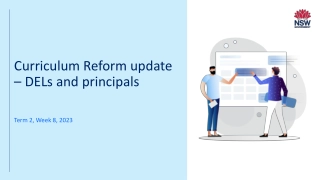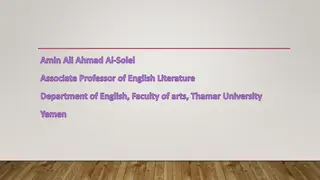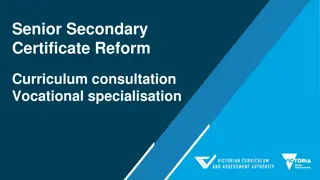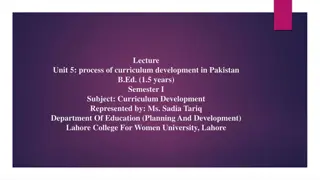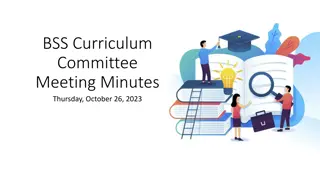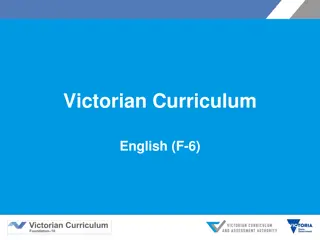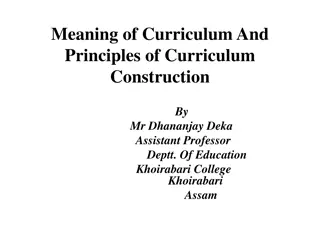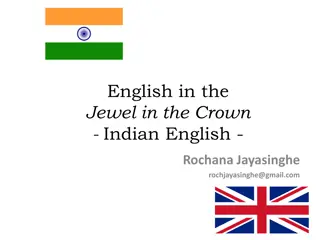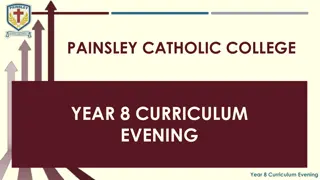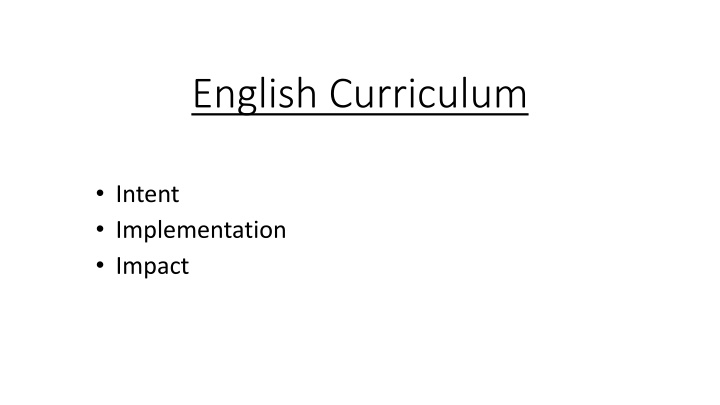
Building a Comprehensive English Curriculum for Student Success
Our English curriculum focuses on sequential learning and literacy skills development, aiming to cultivate fluent readers and accurate, expressive writers. By engaging students' interests, promoting lifelong skills, and fostering a love for English, we empower them to excel academically and personally. Through a tailored approach, including diverse stories, cultural enrichment, and creative expression opportunities, we create a vibrant learning environment conducive to holistic growth.
Download Presentation

Please find below an Image/Link to download the presentation.
The content on the website is provided AS IS for your information and personal use only. It may not be sold, licensed, or shared on other websites without obtaining consent from the author. If you encounter any issues during the download, it is possible that the publisher has removed the file from their server.
You are allowed to download the files provided on this website for personal or commercial use, subject to the condition that they are used lawfully. All files are the property of their respective owners.
The content on the website is provided AS IS for your information and personal use only. It may not be sold, licensed, or shared on other websites without obtaining consent from the author.
E N D
Presentation Transcript
English Curriculum Intent Implementation Impact
Intent For learning to be cumulative and literacy skills to be built sequentially. To read fluently, regardless of preferred mode of communication. To write in English with accuracy, fluency and stamina. Inspire a love of learning English and a passion for reading - engage students using their own interests as a starting point. Give students skills for life and enable them to be independent through functional literacy (reading, writing, communicating). Give students skills for life through the functional skills speaking and listening components. To meet individual needs a flexible, adaptable curriculum with the students at its heart. Give students access to a wide range of diverse stories and voices, both from our literary heritage and beyond. Use these to build students cultural capital and develop the essential knowledge they need to be educated citizens. Increase students world knowledge and make links across the curriculum so that reading and writing is relevant and students can clearly see its purpose. Provide opportunities for creativity and expression as well as developing resilience, autonomy and a growth mindset For all students to achieve qualifications in English an aspirational curriculum for all. Create a culture of reading for pleasure across the whole school community.
Implementation English curriculum plan which builds skills sequentially, taking into account the specific needs of Deaf learners. A range of approaches to reading employed including: phonics instruction, sight learning strategies, BSL-written English translation (see flow chart). Work with the specialist therapy team to provide bespoke language and literacy interventions. Explicit vocabulary instruction at the heart of all teaching, target vocabulary is pre-taught and regularly returned to. Reading scheme books used across key stages 1, 2, 3 (and 4 if appropriate) students read regularly to adults both in school and at home. Daily guided reading session across school (whole school initiative) Visual support provided to support the needs of Deaf learners; a range of tools used including Colourful semantics, Communicate in Print, Clicker8. Grammar skills taught explicitly and regularly returned to, e.g. through starter activities and focused SPaG lessons continuing into key stages 3 and 4. Assessment cycle in which written work is modelled, drafted, feedback given, up-levelled and re-drafted so that students can polish and improve their writing using a purple pen. Books/texts chosen carefully and purposefully to engage the interests of students whilst also ensuring a rich and varied diet of texts. Engaging school library for students to choose books to read for pleasure. Students can also request books to be ordered and added to the library. Books in classrooms relating to specific subject areas. Wherever possible, stories and books are read aloud to students with BSL interpreting. Special events such as World Book Day celebrated to further engage students with reading Regular opportunities for producing their own creative written work their creative voices celebrated and shared through displays, school social media, entry into competitions. A range of qualifications available including GCSE English Language and Literature, Step up to English Entry Level awards, Functional Skills and Unit Awards.
Impact/Evidence Students read with greater fluency and understanding increased scores on the York Assessment for Reading Comprehension (YARC), students moving up through the book bands, weekly reading comprehensions in their reading folders. Students produce written work on a regular basis, at least one piece per half term progress evident in their assessment files. This is assessed and moderated by English teachers to monitor progress and identify next steps. Student voice students enjoy English and are proud of their work. Students choose to go to the library and borrow books. Many students choose to borrow books which have been discussed in English lessons. Primary classrooms are rich in cross curricular language (working walls, displays) and reading and writing is romoted across the whole curriculum e.g. writing instructions to make volcanoes. Lesson observations in other subject areas in secondary show a commitment to supporting literacy across the curriculum, e,g, explicit vocabulary instruction in all subjects, reading information texts etc. Book scrutinies demonstrate that the curriculum intent is being implemented and progress is evident in the books/assessment files. Pupils accessing a range of qualifications at KS4 (GCSE English Language and Literature, Functional Skills from Entry Level 1 to Level 2, Step up to English awards, Unit Awards) meaning that all pupils are supported to achieve in English and reach their full potential. Very positive feedback reports from both the Functional Skills and Step up to English external verifiers. We have promoted a reading for pleasure through successful events such as World Book Day (which parents also attend), our book advent calendar leading up to Christmas and a whole school poetry anthology of pupils work. We have had several successful author/illustrator visits which have been well received and enjoyed by pupils. We have also utilised the library to support events in the wider calendar such as Black History Month, LGBTQ+ Pride month and Deaf awareness week with displays and new books proving very popular.




